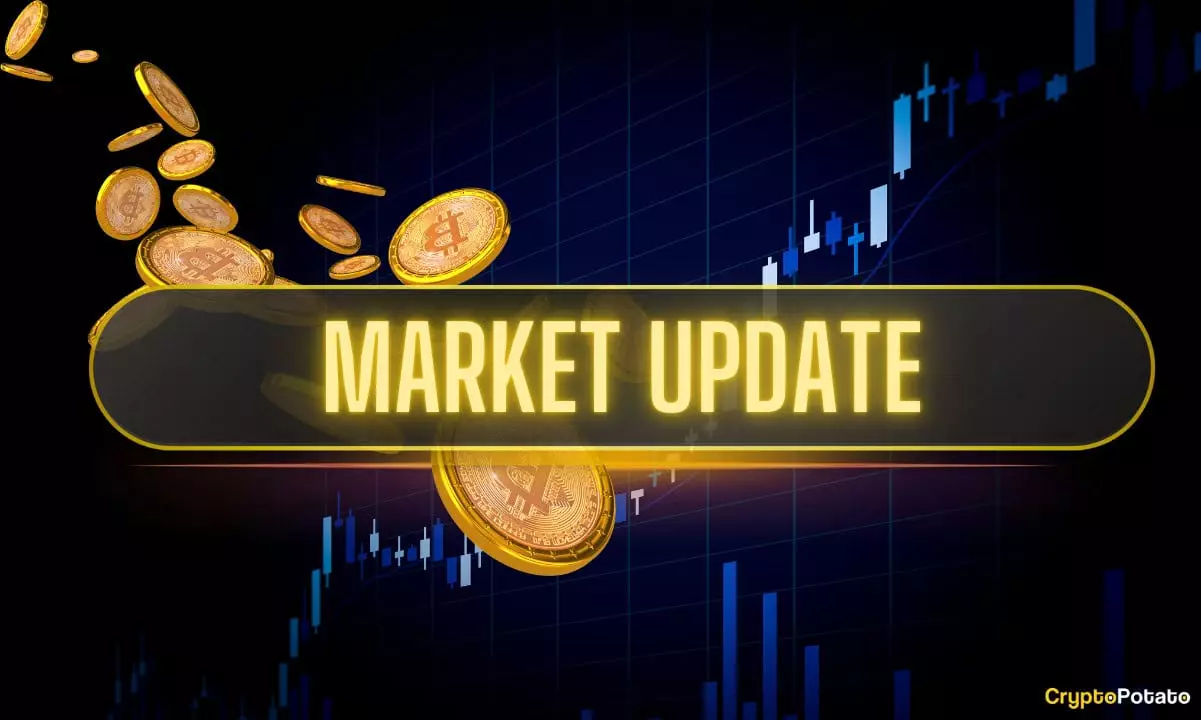The cryptocurrency realm, often heralded as a leading edge of financial innovation, has experienced its fair share of volatility, especially in the past week. After weeks of bullish momentum that propelled the market to heights previously deemed unattainable, a swift reality check has emerged. The total market capitalization has seen a dramatic contraction, shedding over $300 billion, signaling a tumultuous phase for both retail and institutional investors alike.
The week commenced with Bitcoin reaching an unprecedented pinnacle, soaring past $108,000—a moment that seemed to solidify its status as a gold alternative. Anticipation was high ahead of the US Federal Reserve’s meeting, with many expecting a further reduction in interest rates, a scenario often regarded as favorable for high-risk assets like cryptocurrencies. However, the outcome dashed hopes as Federal Reserve Chairman Jerome Powell hinted at a potential slowdown in rate cuts due to surging inflation. This unexpected pivot sent shockwaves across the market, inducing a drastic sell-off reminiscent of past downturns.
The immediate repercussions for Bitcoin were apparent, as its value plummeted, tearing through the psychological support of $100,000 and landing at approximately $92,000. This drop was not merely an isolated incident for Bitcoin; it triggered a broader market correction. On Friday, alone, liquidations exceeding $1.3 billion were reported, laying bare the risks inherent in leveraged trading within this space.
The impact of Bitcoin’s decline reverberated through the altcoin market, where many digital currencies found themselves submerged in the red. Ethereum, one of the leading altcoins, faced a substantial drop of nearly 15%, while other notable players like XRP and BNB followed suit with declines of 10% and 8%, respectively. The most staggering fall came from Shiba Inu and Dogecoin, with drops approaching 25%, showcasing the volatility that plagues these meme-inspired cryptocurrencies.
Amidst the tumult, several discussions have ignited within the community regarding the potential end of this bull run. While speculation is rampant, it is crucial for investors to maintain a comprehensive view rather than succumb to panic. Historical patterns suggest that market cycles often encompass downturns followed by renewed interest and momentum, encouraging a balanced approach to trading and investment strategies moving forward.
While the market faces turbulence, institutional participation continues to evolve. MicroStrategy, a prominent player in the Bitcoin acquisition arena, recently announced the purchase of 15,350 BTC, amounting to $1.5 billion at an average price slightly above $100,000 per coin. Such moves underscore the unwavering interest from institutional investors, evidenced by the decision to continue strategic accumulation even amid market volatility.
Ripple, navigating its ongoing legal hurdles with U.S. regulators, also made headlines by launching its own stablecoin, RLUSD, slated for release in December. This entry into the stablecoin market may bode well for XRP’s future valuation, showcasing Ripple’s resilience and adaptability in times of uncertainty.
An interesting phenomenon unfolding within the Ethereum space is the significant accumulation by whales. Recent on-chain data reveals that the cohort of wallets holding a minimum of 100,000 ETH has surged, now encompassing a record 57% of the total supply. Such accumulation patterns signal a potentially bullish sentiment among large holders, who appear to be positioning themselves ahead of future market movements.
Another noteworthy development lies with the BlackRock Bitcoin ETF, which has experienced extraordinary growth in its assets under management (AUM). In less than 12 months, it has surpassed $60 billion, illustrating the enormous appetite for Bitcoin as an investment tool, eclipsing performances of traditional ETFs significantly linked to precious metals.
The Federal Reserve’s recent decisions and comments have undeniably influenced market sentiment, driving a wedge between expectation and reality. What many considered a mere interest rate cut became a harbinger of caution, as Powell’s hints at potential curbing of rate reductions ignited volatility. Following the FOMC meeting, Bitcoin ETFs suffered record net outflows of around $700 million—indicative of a market reeling from the Fed’s ambiguous stance.
As we look ahead, the digital currency landscape is poised for an intriguing phase. The aftermath of the recent sell-offs offers both challenges and opportunities. Investors are urged to remain vigilant, equipped with an understanding that the complexities of this market demand a blend of strategic foresight and emotional resilience. The next few weeks could dictate the trajectory for cryptocurrencies—whether they will rebound as they have in the past or enter a period of prolonged uncertainty remains to be seen. As historical patterns often reveal, caution and patience could be vital attributes as the market materializes through this rough patch.














